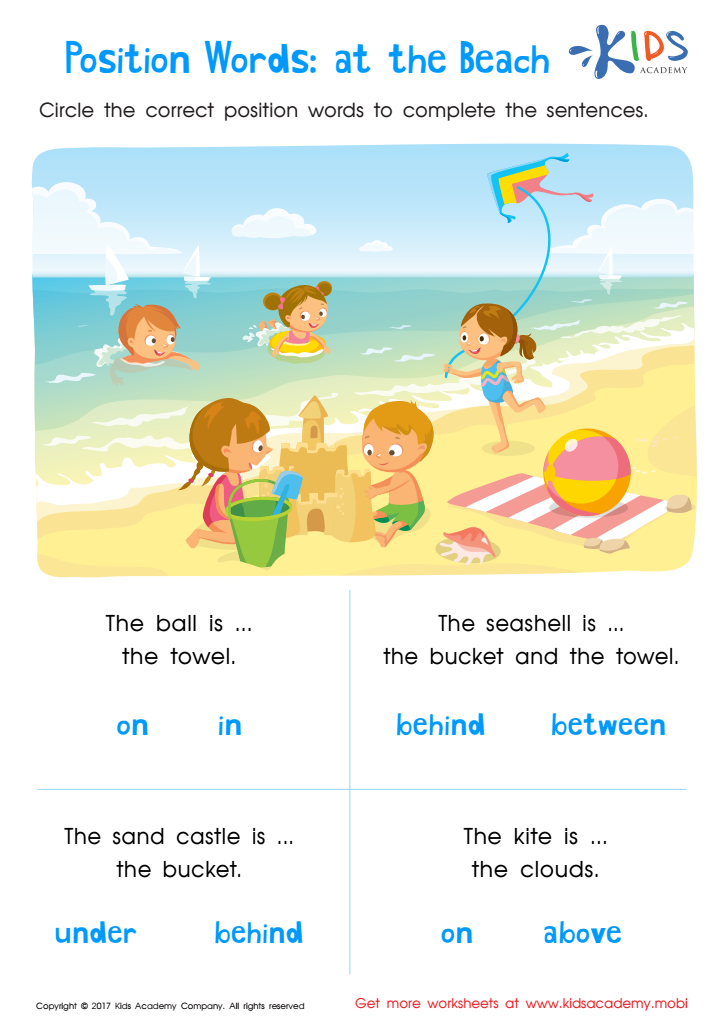Vocabulary Building Reading Worksheets for Ages 4-9
30 filtered results
-
From - To
Enhance your child's vocabulary with our engaging Vocabulary Building Reading Worksheets, designed specifically for ages 4-9! These worksheets provide a fun and interactive way for young learners to explore new words, improve language skills, and boost reading comprehension. Featuring colorful illustrations and relatable contexts, each activity captivates children's attention while reinforcing their understanding of vocabulary. Ideal for both home and classroom use, our materials cater to various learning styles, making word learning enjoyable and effective. Choose empowering resources that foster a love for reading and enhance communication skills. Start building a strong vocabulary foundation for your child today!
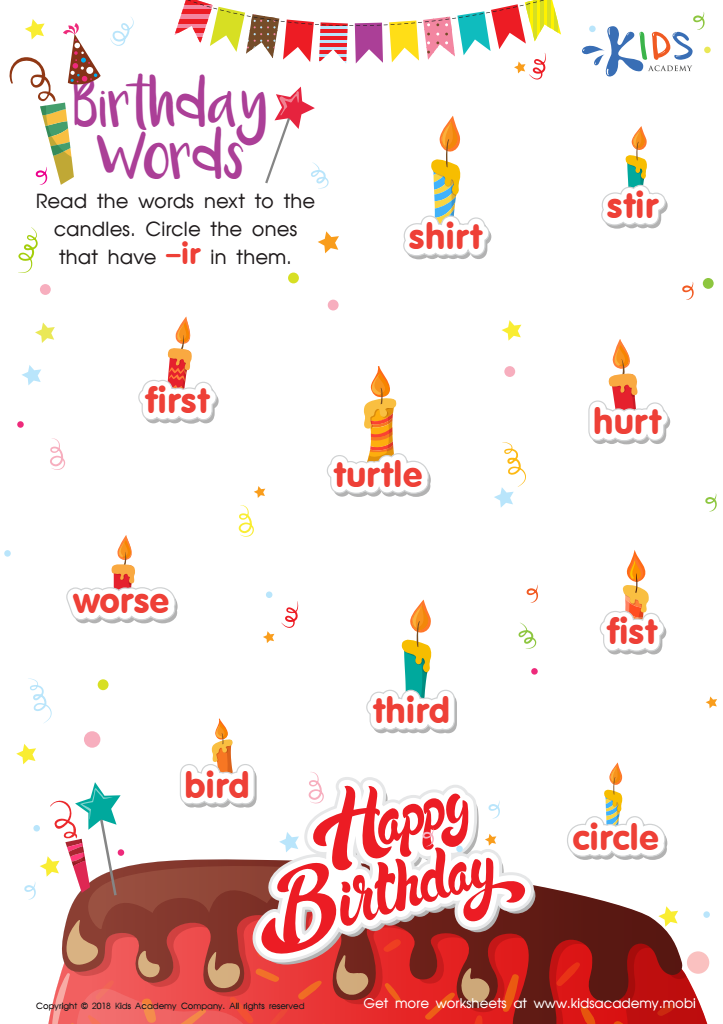

Birthday Words Worksheet
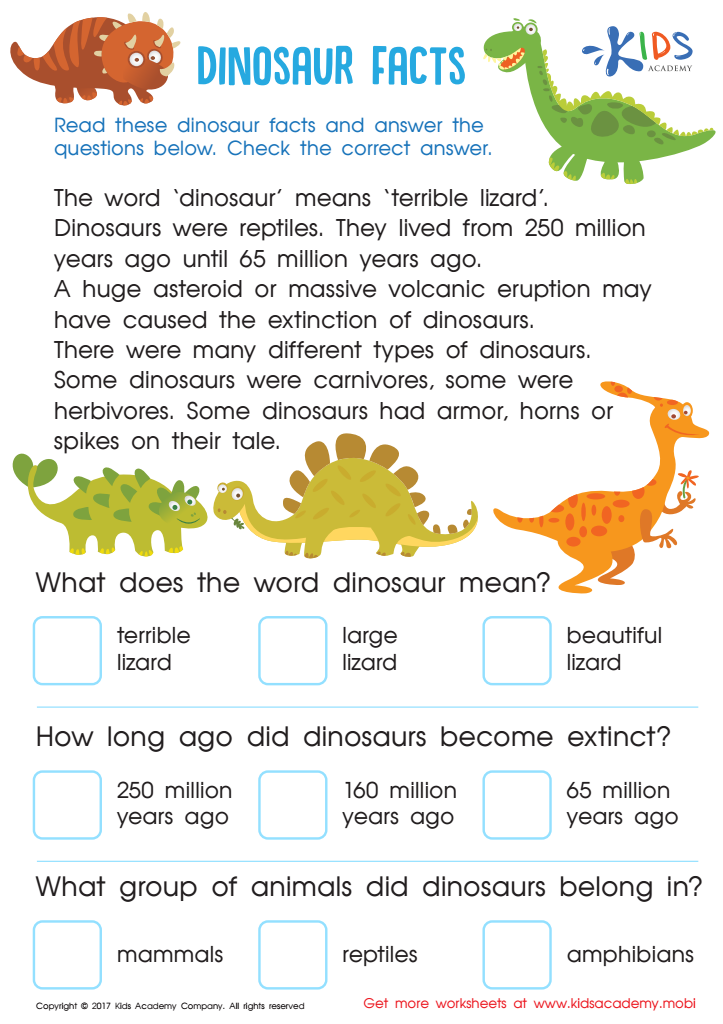

Dinosaur Facts Worksheet
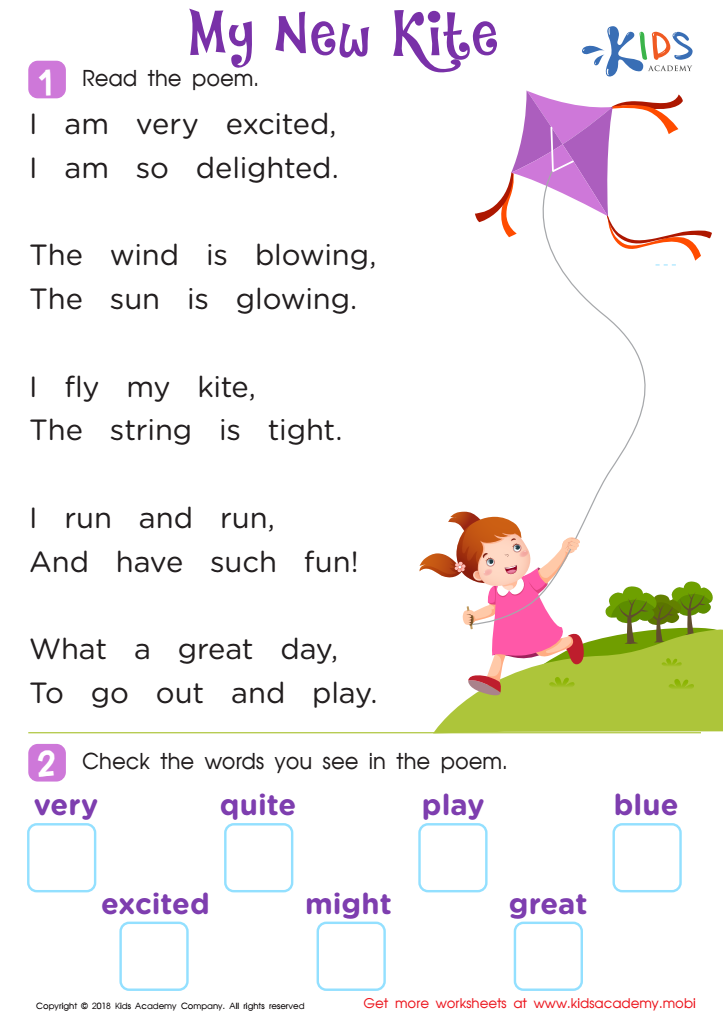

Poem: My New Kite Worksheet
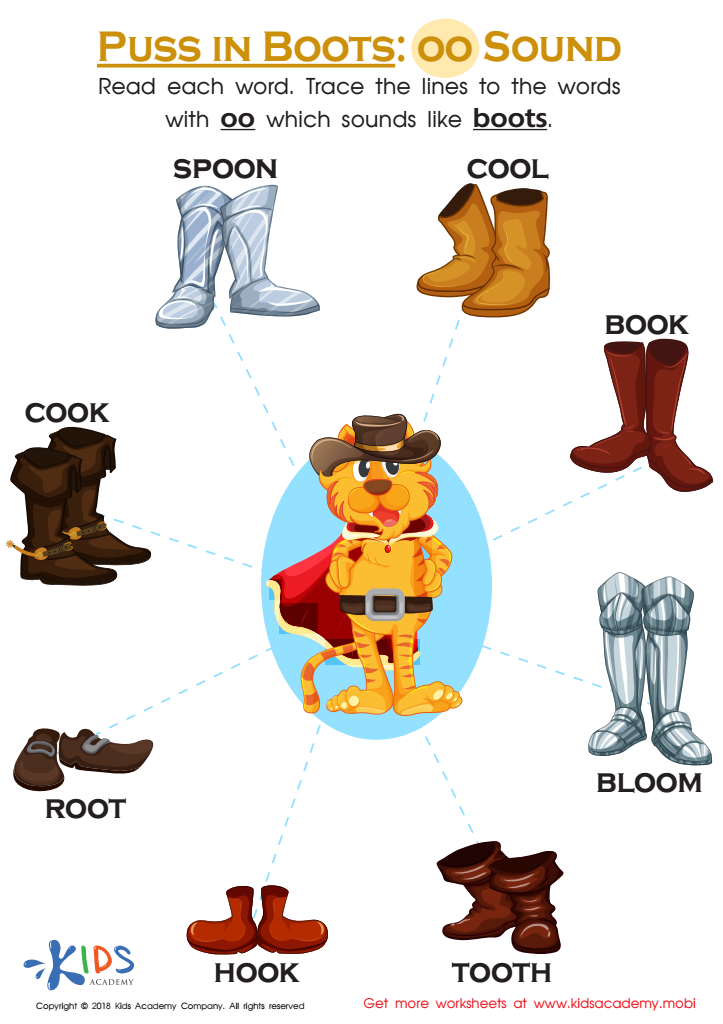

Puss in Boots: OO Sound Worksheet
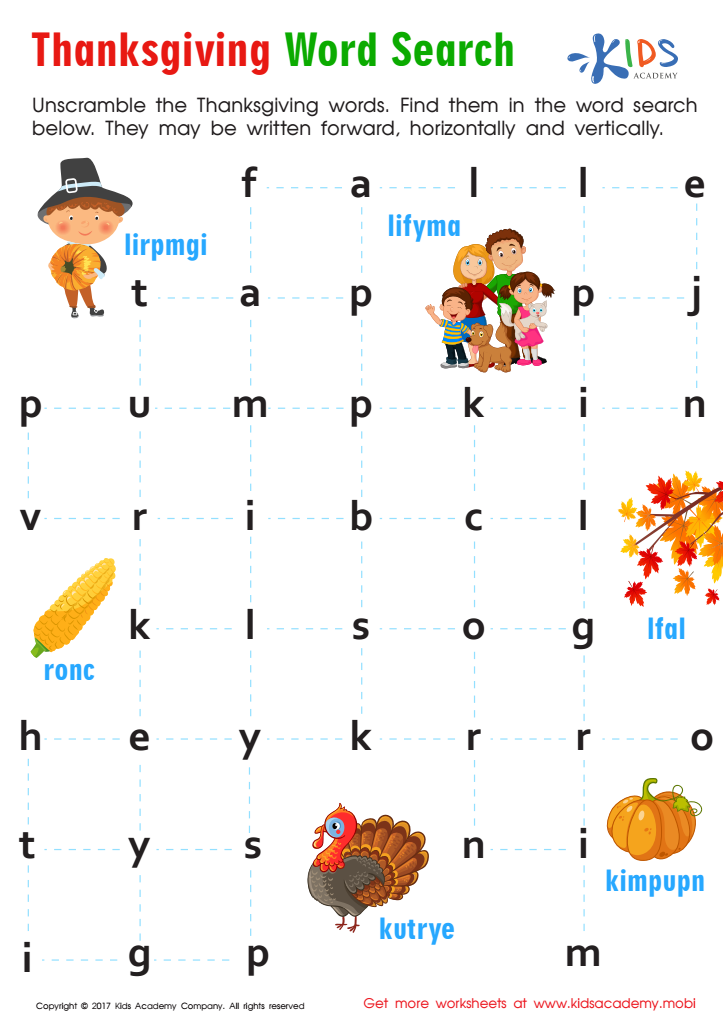

Thanksgiving Word Search Sight Words Worksheet
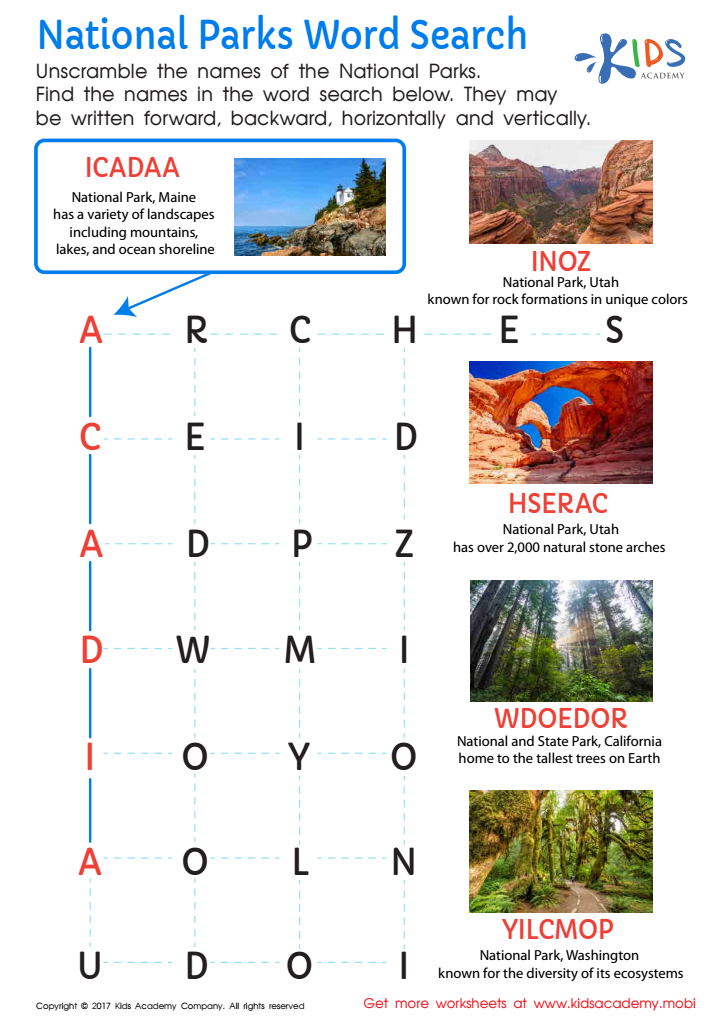

National Parks Word Search Worksheet
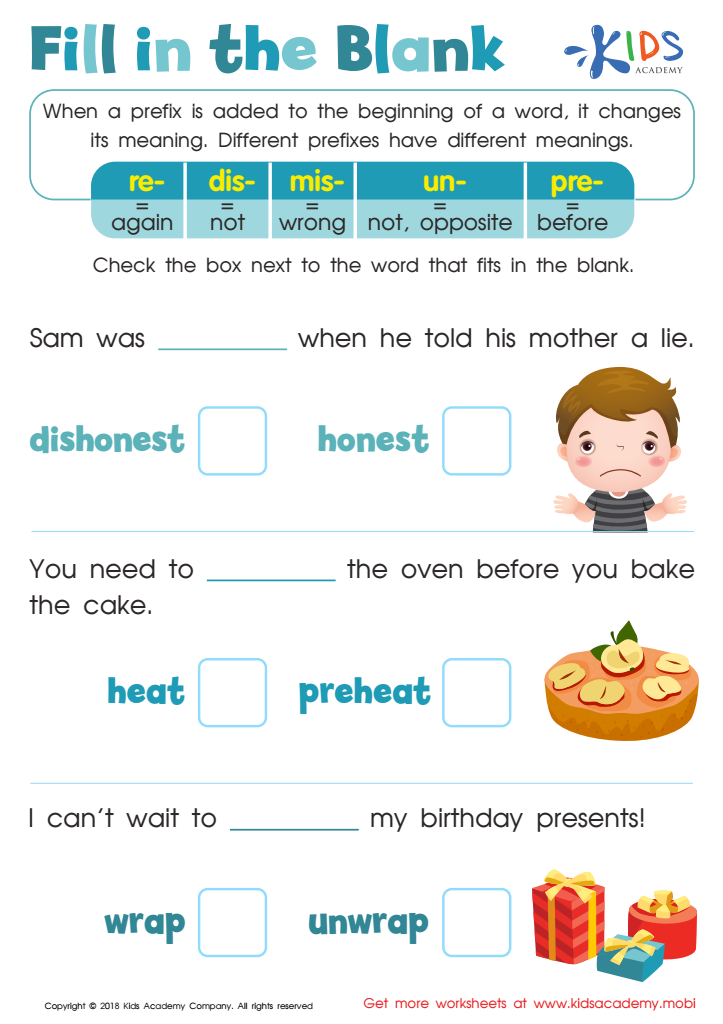

Reading: Fill in the Blank Worksheet
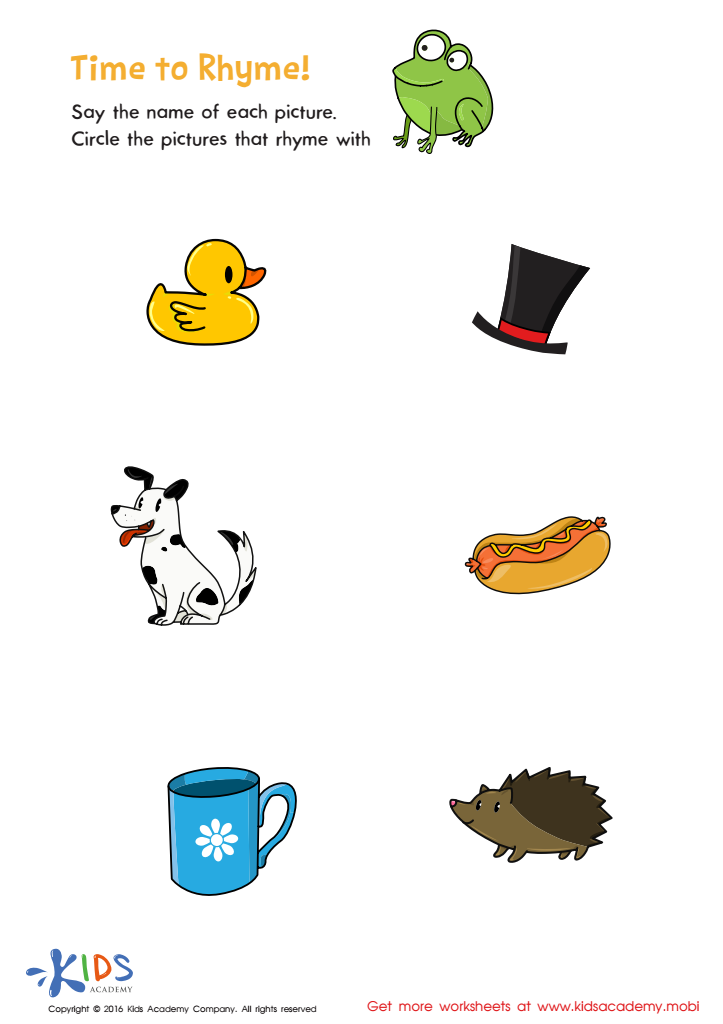

Rhyming Worksheet: Time to Rhyme Rhyming Worksheet
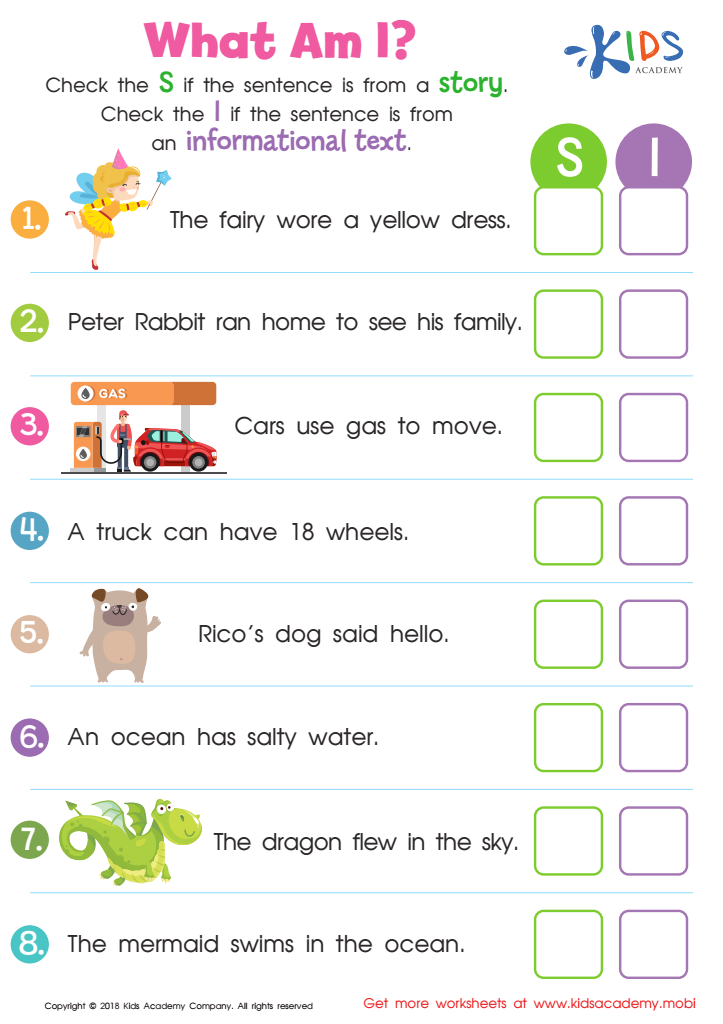

What Am I? Worksheet
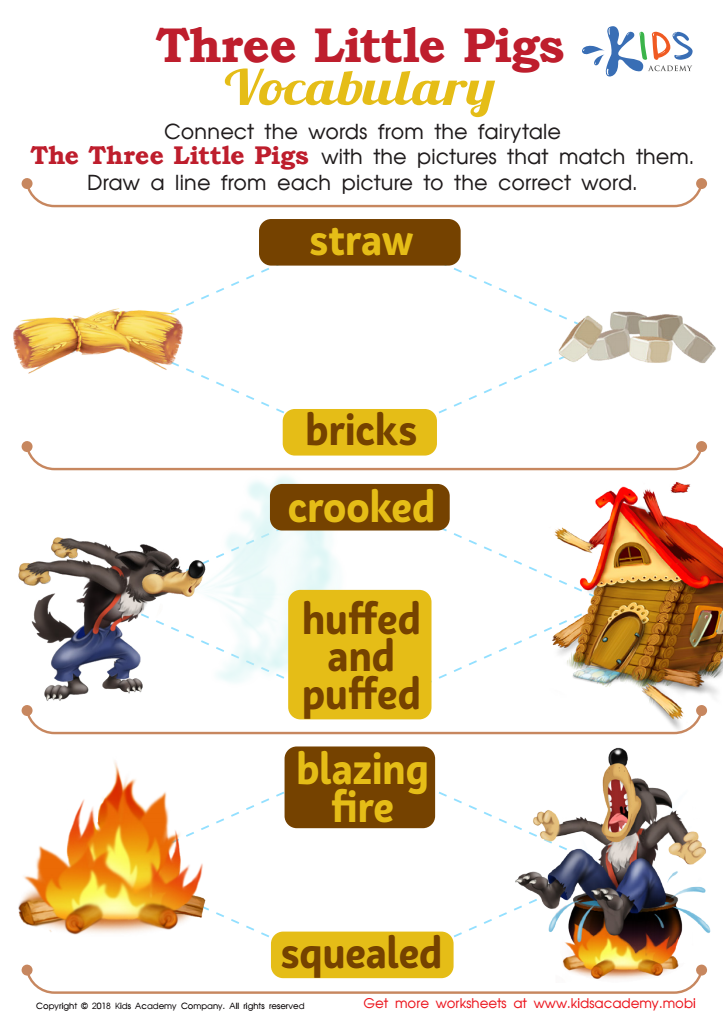

Three Little Pigs Vocabulary Worksheet
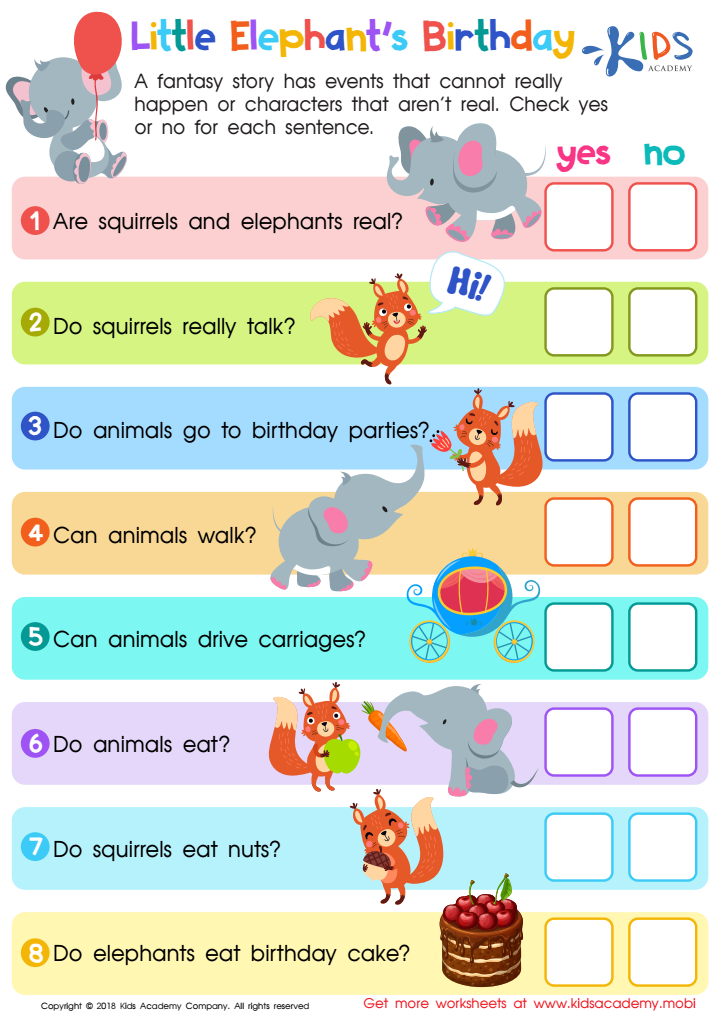

Little Elephant's Birthday Worksheet
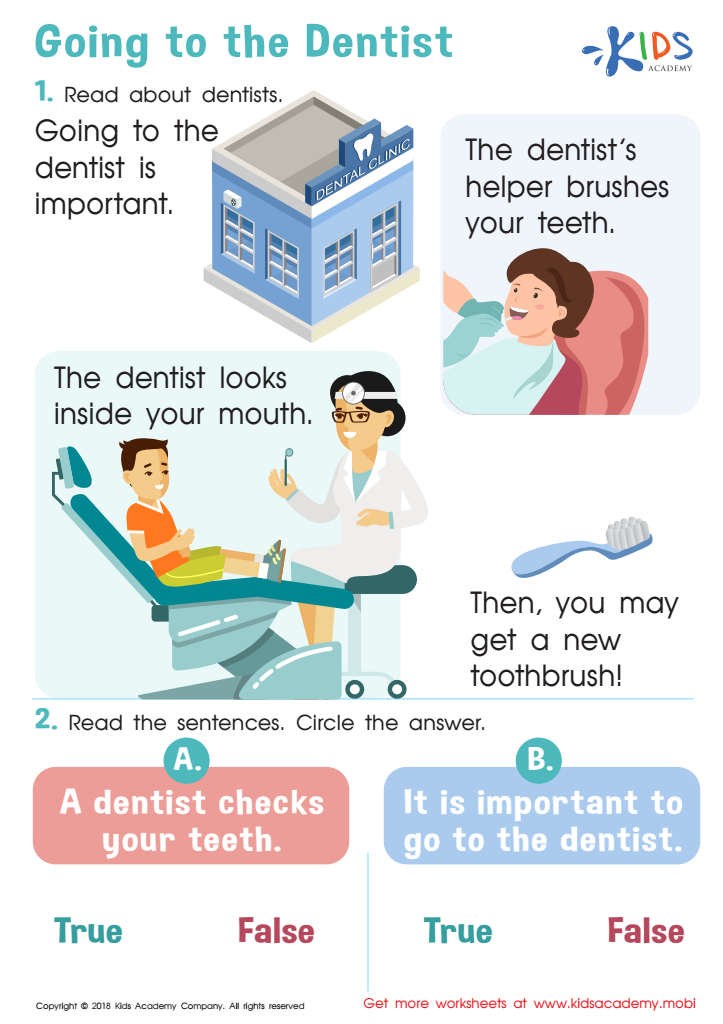

Going to the Dentist Part 2 Worksheet
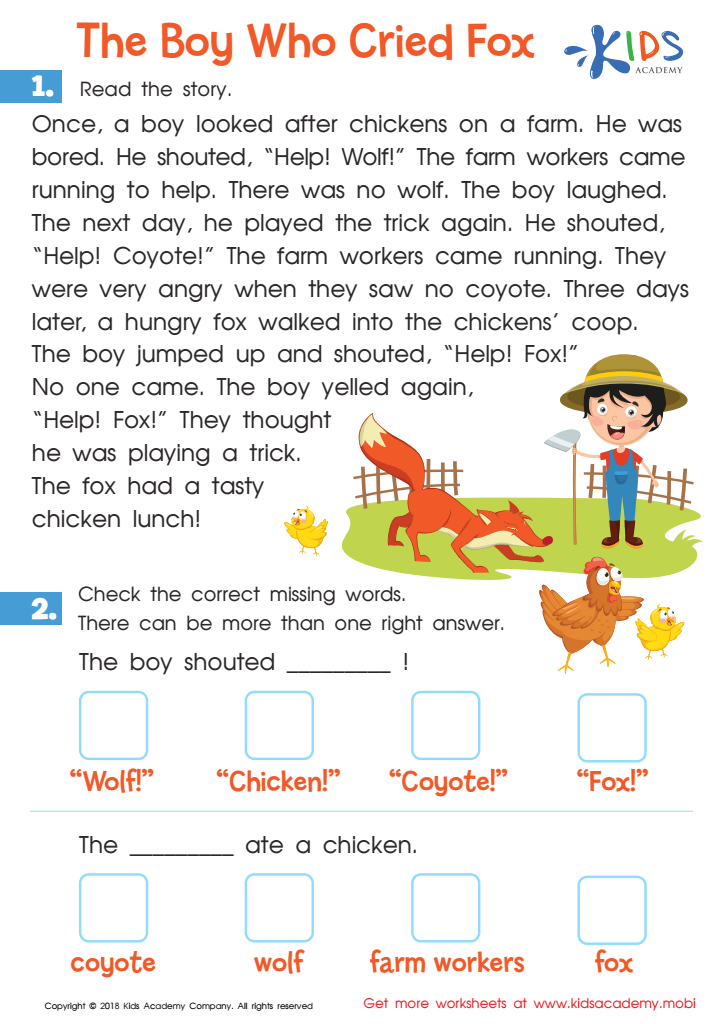

The Boy Who Cried Fox Worksheet
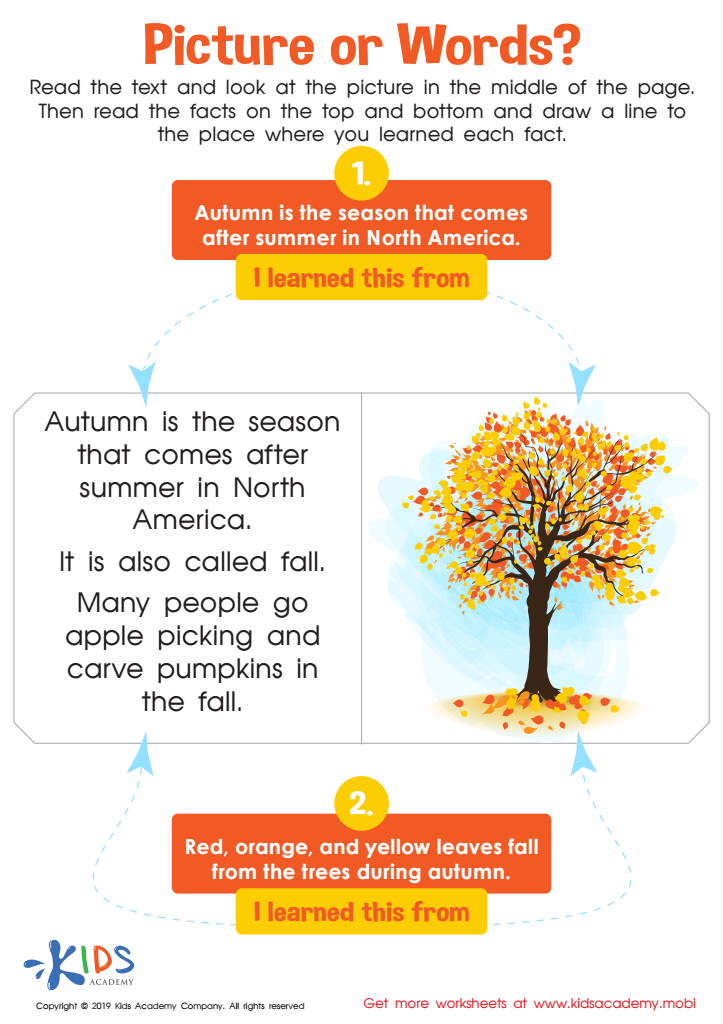

Picture Words Worksheet
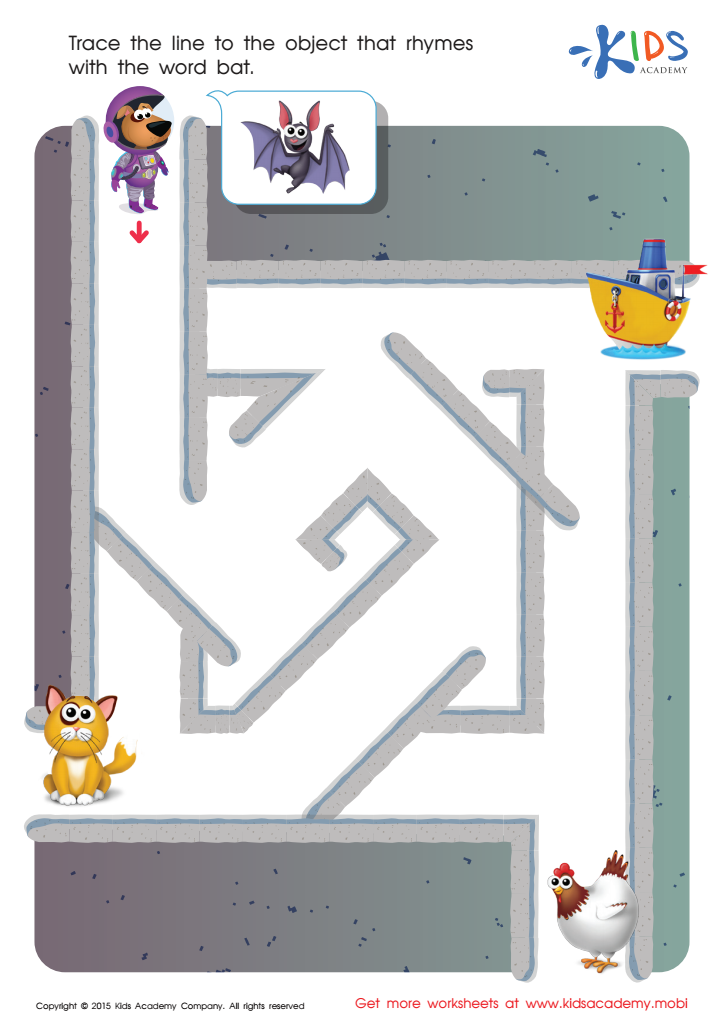

Bat Rhyming Words Worksheet
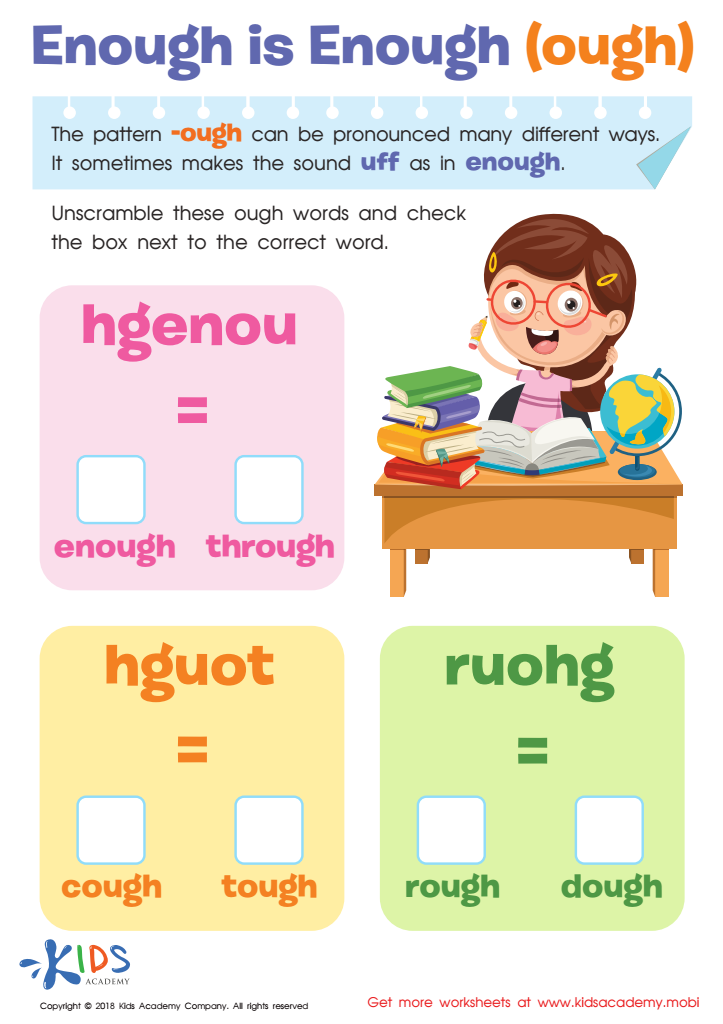

Enough Is Enough (ough) Worksheet
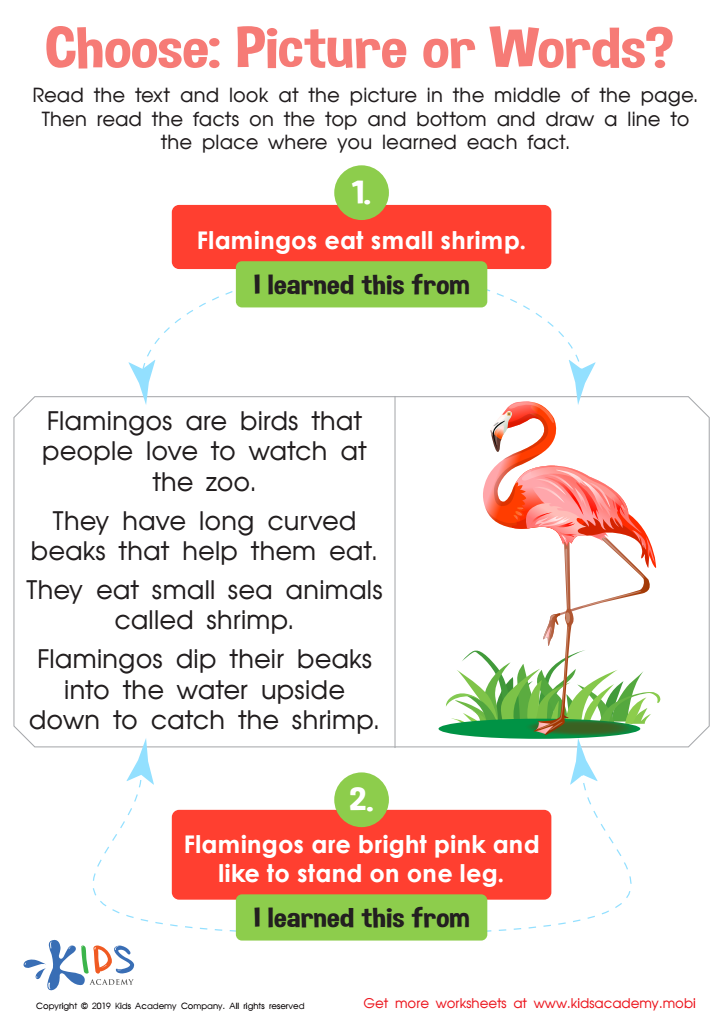

Choose Picture Words Worksheet
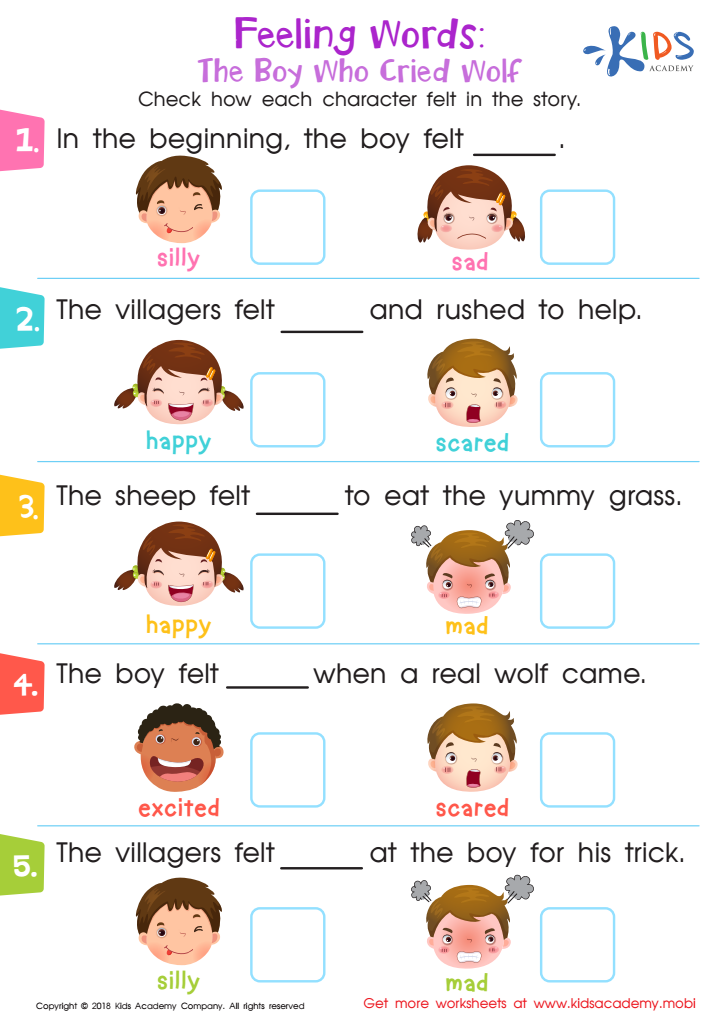

Feeling Words: The Boy Who Cried Wolf Worksheet
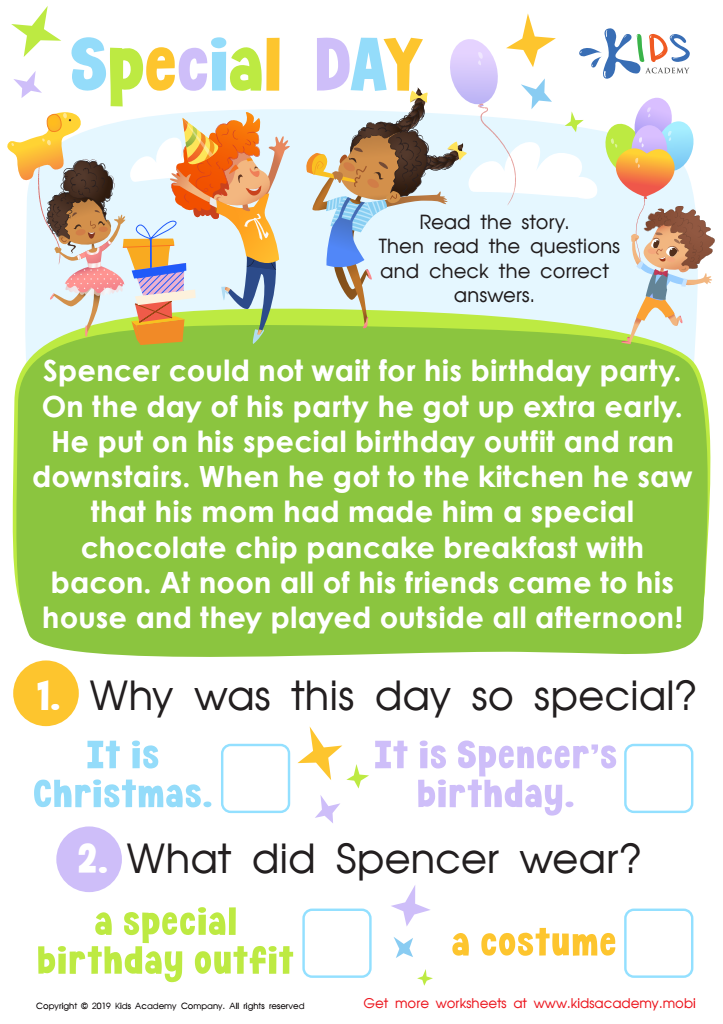

Special Day Worksheet


Golden Eagles Worksheet
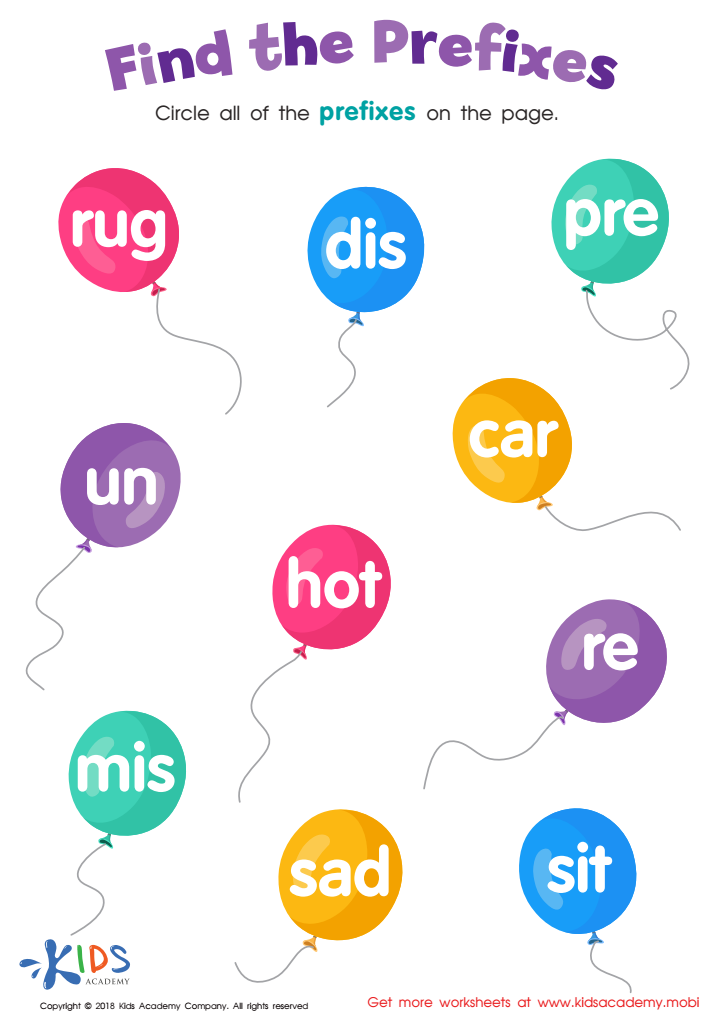

Reading: Find the Prefixes Worksheet
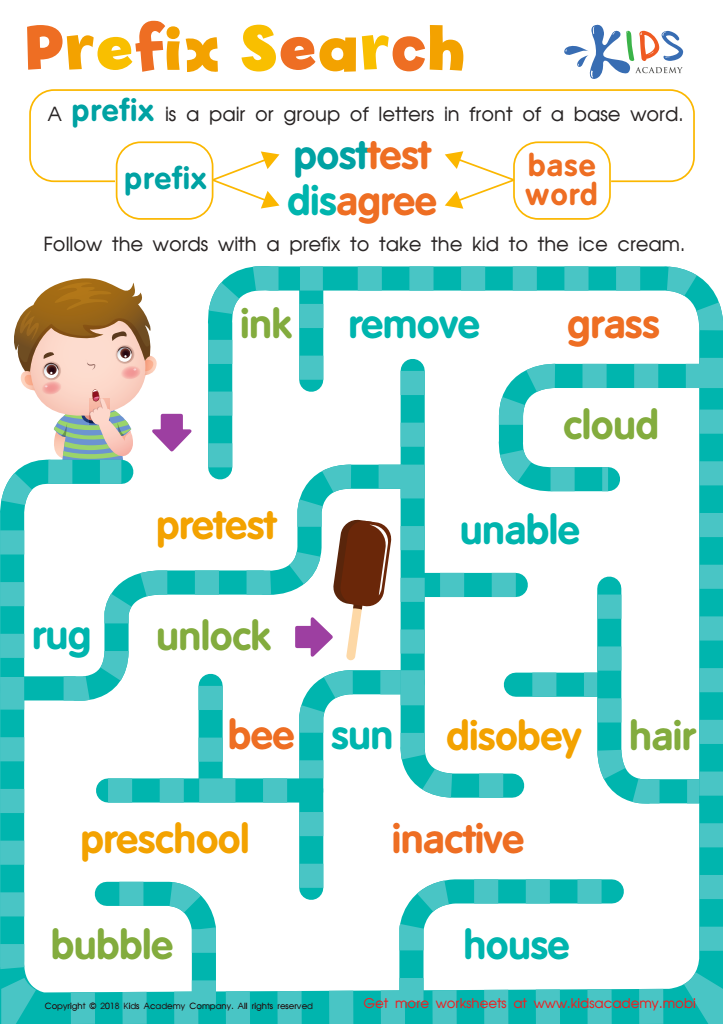

Reading: Prefix Search Worksheet
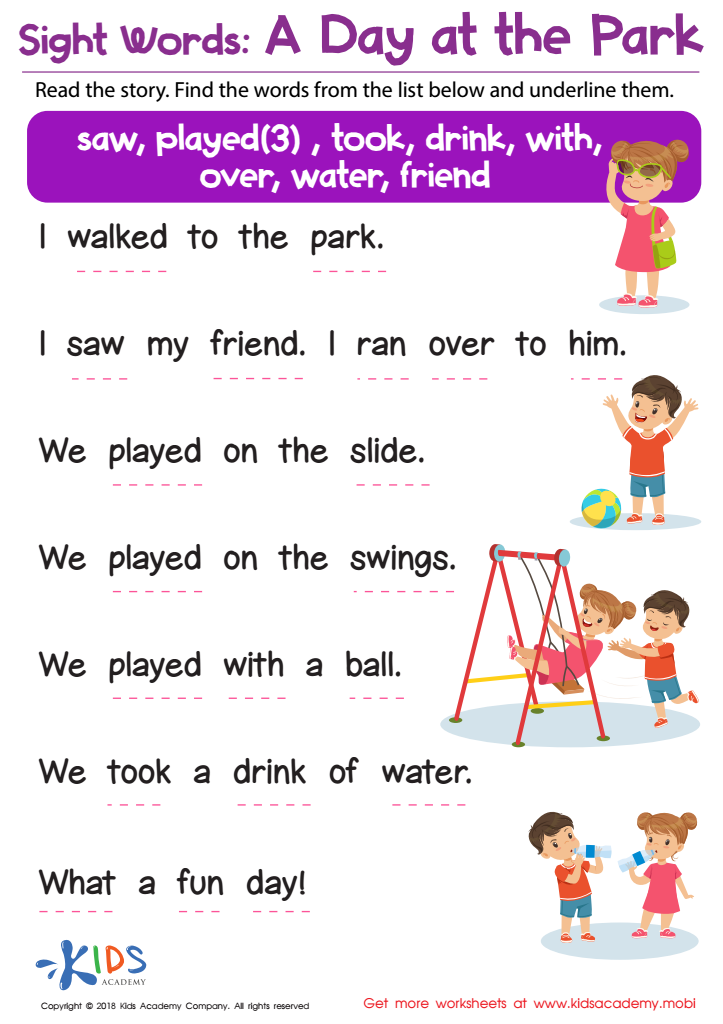

Sight Words: A Day at the Park Worksheet
Vocabulary building is essential for children aged 4-9 as it lays the foundation for effective communication, critical thinking, and lifelong learning. During this crucial developmental stage, children are eagerly soaking up information and language, making it an ideal time for vocabulary enhancement. A rich vocabulary promotes better reading comprehension, enabling students to decode texts and grasp underlying meanings, which boosts their academic performance across subjects.
Parents and teachers should care about vocabulary development because it fosters children's confidence in their literacy skills. As they expand their word knowledge, children become more articulate, enhancing their ability to express themselves clearly and creatively—skills critical for social interactions and classroom participation. Additionally, a robust vocabulary is linked to improved cognitive abilities, promoting critical thinking and problem-solving skills, which are vital for future success.
Moreover, engaging in vocabulary-building activities—through storytelling, word games, and conversations—strengthens the bond between children and their caregivers, enhancing emotional development. Overall, a focus on vocabulary building enriches children's educational experiences, empowers them for future learning, and contributes positively to their personal growth and social development, making it a priority for both parents and teachers.

 Assign to My Students
Assign to My Students


